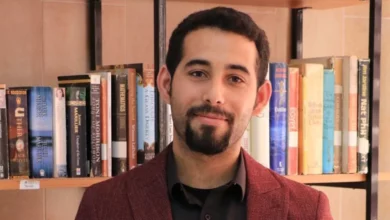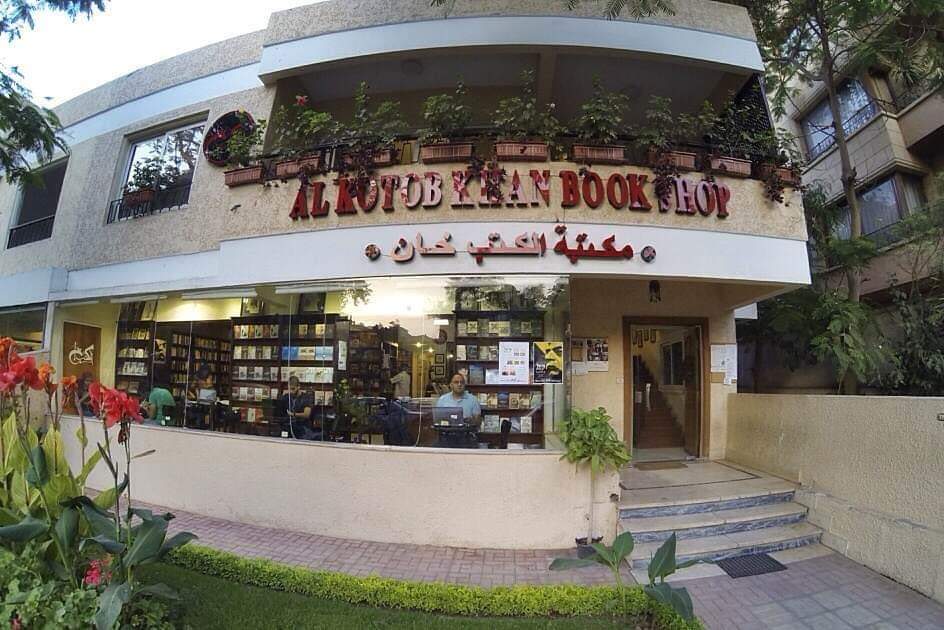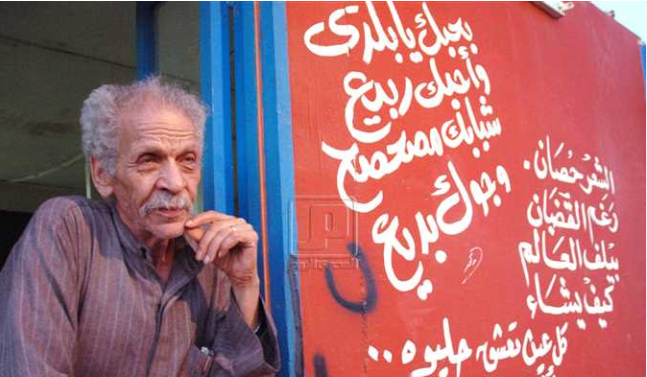After years of intensive work, Nabil Bahgat, a professor of Arabic theater at Helwan University and director of the Beit el-Seheimy culture center, released his book Badei Kheiry last week at a friendly gathering at Beit el-Seheimy. The book, focusing on the life and work of the famous poet, songwriter and playwright Badei Kheiry is the first to document Kheiry’s poetry.
Bahgat, who compiled Kheiry’s plays prior to this latest release, starts his 888-page volume with a biography of the Cairo born writer whose launch into the world of poetry and art concurred with the revolution of 1919.
“I started my research with a thorough analysis of the Egyptian character and mentality at the beginning of the last century,” says Bahgat. Throughout his work, the researcher studied Kheiry and his theatrical work and how it helped form Egyptian social and political awareness.
Badei Kheiry was born on 18 August, 1893 in Cairo. His father emigrated from Turkey in 1890 to work for Khedive Abbas II, and his mother was the grandchild of a wealthy merchant in Ghoriya.
The young Kheiry received a diploma in teaching in 1914. In 1906, the 13-year-old poet published his first work, a poem about the National Democratic Party, signing it "Ibn el-Nil" (Son of the Nile).
Between 1914 and 1918, the British occupation imposed strict restrictions on Egyptians and a new wave of entertainment was born to lighten the load of a depressed people. On 18 August, 1918 Kheiry was appointed writer for el-Rihany theatrical troupe. Kheiry wrote some of the most famous songs of the era, mainly for Sayyed Darwish, such as el-Helwa de ammet teiggen fel fagria (The pretty one got up to bake at dawn), Owaa tekalemni baba gayye waraya (Don’t talk to me, father is approaching from behind), Salma ya Salama (Safe and Sound), Ya halawet um Ismail (The pretty mother of Ismail), and many others.
“When I started work, I realized that there are no compiled works for Kheiry,” says Bahgat. Periodicals from the 1920s and 1930s like Al-Sabah, Al-Istiqlal, Misr Horra, and Rose Al-Youssef were Bahgat’s primary sources; another source was the library of the National Theater Council and other private libraries belonging to collectors.
“I am interested in everything that shaped the awareness of the Egyptian people. During years of research I came to the realization that most of the artistic work of the nineteenth century was by an unknown artist,” notes Bahgat. Kheiry was an intellectual with a cause and his poems fed the revolution of 1919, says the researcher.
After years of freelancing for newspapers and working under a pseudonym for el-Rihany theater troupe, Kheiry published his first newspaper on 23 December 1925 titled Alf Sanf (A Thousand Items). Due to the political turbulence at the time, with the British occupying Egypt, the rising activist produced around four or five different newspapers, all of which were quickly closed down by the government.
Most of Kheiry’s work documented the life of the average Egyptian citizen, poverty, and the struggle against British occupation and the king. Despite the simplicity of his words, Kheiry’s songs, plays and poems were balls of fire thrown at his targets. The rich social and political arena gave Kheiry’s talent a chance to blossom.
He wrote some fiery political and social poems like Atareih Sir Bulaqi (Turns out he’s a sir from Bulaq), a poem condemning Sir Marshal Holl, a British official who defended Margret, wife of the Egyptian millionaire Ali Fahmi Kamel. Margret killed her Egyptian husband but evaded justice based on her lawyer’s false defense. Kheiry also wrote an ironic poem about the State Council, launching a political competition for readers, in which he ridiculed the government and the ministers and laments the conditions of the average poor citizen.
Bahgat succeeds in highlighting the genius twists in Kheiry’s writings. He reached the hearts and minds of all Egyptians with their various backgrounds, educational levels and interests. Kheiry’s magical mixture of formal and colloquial Arabic, although frowned upon by poets at the time, guaranteed his popularity. He was a revolutionary writer who wrote the lyrics of numerous songs for Egypt’s renowned composer Sayyed Darwish.
Below is an excerpt from the poem "Azreal Signs the Contract" by Badei Kheiry:
I walked past Egypt weeping by a wall
I wondered "What is she sobbing over?"
"Excuse me!" She said, "Can’t you see all the political claptrap?"
Conditions could not be any lousier
And all those who care have either given up or died
Remaining are only rainy days
For the few good days are behind us
My tears will fill up buckets
And clog up the drains
Can’t you see the size of the problem?
Can’t you hear the blazing guns?
Baghat’s book is available at Merit publishing house. The collector’s item is worth every penny.




